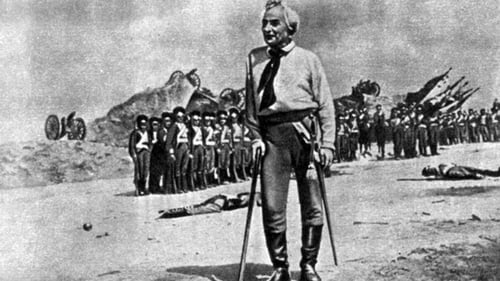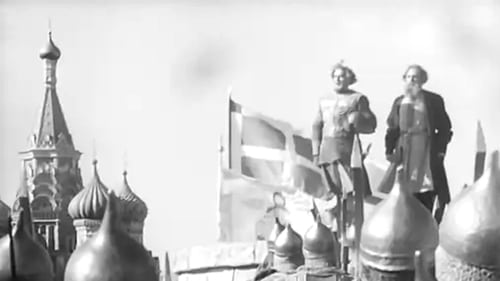
Director

Director
Primarily a biographical documentary about the military career of Alexander Vasilvich Suvorov, who was Field Marshal of the armies of Catherine the Great and Czar Paul I. After many military successes during the reign of Catherine, General Suvorov broke with her successor, Paul I, the Mad Emperor, over questions regarding army policy. He went into retirement and wrote "The Science of Victory," containing maxims such as "Swiftness of movement accompanies victory," and "the real general is he who defeats the enemy before reaching him." The czar recalled Suvorov to become the leader of the joint armies of Russia and Austria against Napoleon.

Producer

Director

Co-Director
As a response to criticism for the allegedly excessive “mass appeal” of his earlier epic STORM OVER ASIA (1928), Vsevolod Pudovkin unleashed his flair for experimentation in what was supposed to be the director’s first sound feature. Everything went wrong: technical problems forced him to complete the film as a silent; viewers were baffled by the lack of a recognizable plot; then, the ideological climate of the Soviet Union changed. He was now being blamed for catering to bourgeois taste! Time has come to set the record straight. Here’s lyrical cinema at its best, deliberately operatic and yet intimate as it matches the characters’ inner life with the solemn rhythms of nature, and depicted through breathtaking black-and-white photography. A sensation at last year’s Pordenone fest, Pudovkin’s long-forgotten swan song to the art of montage is resurrected by Gabriel Thibaudeau’s emotionally charged live music performance. –PCU (USSR, 1930, 75m)

Director
From his early silent works, the great Russian film director, Herr Yakov Protazanov, made literary adaptations from equally great Russian writers, as is the case with "Chiny I Lyudi" ( Ranks And People ) (1929) in which three short stories by Chekhov, "Anna On The Neck", "Death Of A Petty Official" and "Chameleon" were assembled for the silent screen.

Russian Student
A Socialist Realist distortion of Dr. Paul Kammerer's experiments in the inheritance of acquired character(istic)s -- the (not entirely anti-Darwinian) conjecture that certain changes the environment produces in an individual may spontaneously appear in the next generation. As recounted in Arthur Koestler's The Case of the Midwife Toad (1971), Kammerer (1880-1926) claimed that darkened footpads he had artificially induced in a toad had been passed on to its offspring. When it was discovered that his critical specimen had been injected with ink (though why and by whom is still unknown), his credibility was destroyed and he apparently suicided. Richard Goldschmidt's synopsis of the film in "Research and Politics," Nature (1949), mocks it as Soviet propaganda in support of the inheritance of acquired characters: The importance attached to the subject is revealed by the facts that none other than the then all-powerful [People's] Commissar for [Public] Education, the highly ...

Co-Director
A peasant in rural Russia comes to St. Petersburg to escape absolute poverty and find work at the outbreak of the First World War. He comes to stay with his friend, a Bolshevik worker who has organized a strike at his factory. The peasant betrays his friend to the factory's greedy management, leading to the arrest of the striker. Feeling remorseful at his actions, the peasant attempts to plead for his friend’s freedom, but the situation escalates and he is imprisoned without trial and sent to fight in the war. After returning from the front, the peasant joins the revolutionary fight along with the Bolshevik worker.

In a capitalist country, workers are heavily repressed but manage to get a "death ray" to fight back. (A part of the movie is lost.)




